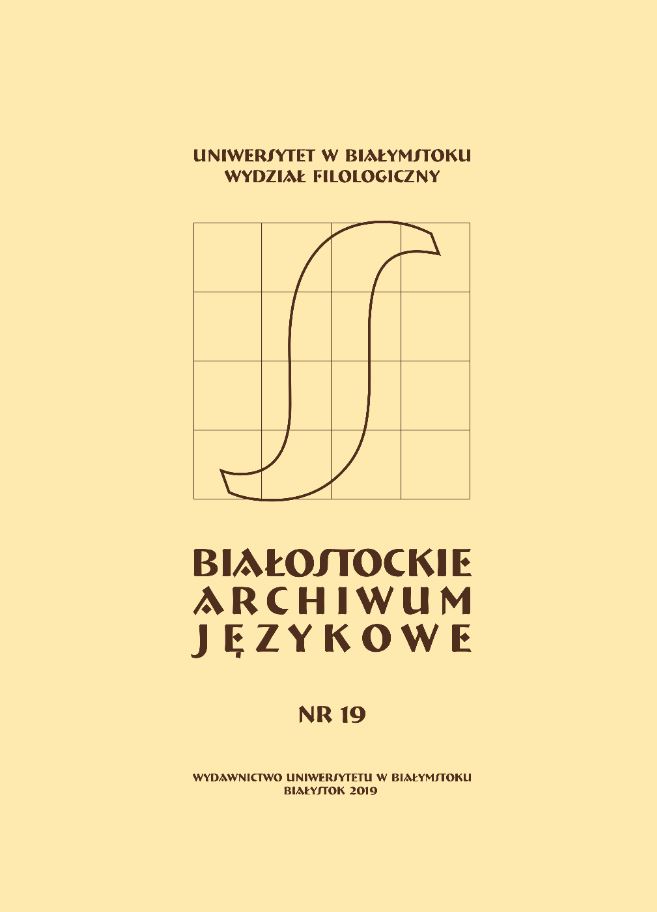Les anthroponymes dans le roman Uwikłanie de Zygmunt Miłoszewski et dans sa traduction en français
Anthroponyms in Zygmunt Miloszewski’s novel Uwiklanie and its French translation
Author(s): Urszula KochanowskaSubject(s): Language and Literature Studies, Translation Studies
Published by: Wydawnictwo Uniwersytetu w Białymstoku
Keywords: anthroponyms in literature; translation techniques; crime novel, socio-cultural reality
Summary/Abstract: This article is a study of anthroponyms in the French translation of the Polish crime novel Uwikłanie by Zygmunt Miłoszewski. The analysis of translated anthroponyms reveals a number of techniques applied by the translator. The most frequently used are name and surname transfers without any modifications and transfers with spelling modifications (e.g. by removing Polish diacritic marks). In the case of fictional characters most features characteristic of Polish anthroponyms (diminutive forms of names, female surnames with an -owa suffix, a Ms/Mr+first name structure) have been lost in translation. With real characters, whose role in the novel is to add authenticity to the picture of contemporary Poland, the translator always adds information such as occupation or function to their names, which contributes to the greater length of the French translation of the Polish original. This translation technique provides the French reader of the novel with an insight into the socio-cultural reality of life in Poland. Comprehension of the novel by foreign readers is facilitated by this translation technique. The rationale behind the translator’s decision to apply this technique was probably the fact that the novel belongs to popular literature.
Journal: Białostockie Archiwum Językowe
- Issue Year: 2019
- Issue No: 19
- Page Range: 175-187
- Page Count: 13
- Language: French

